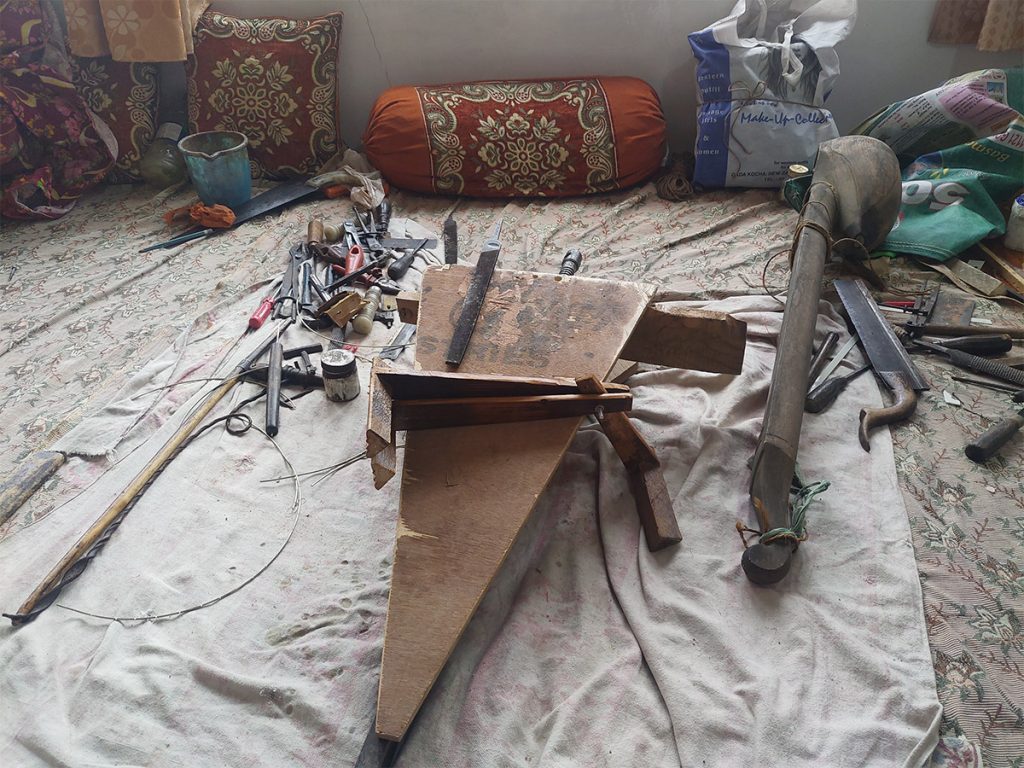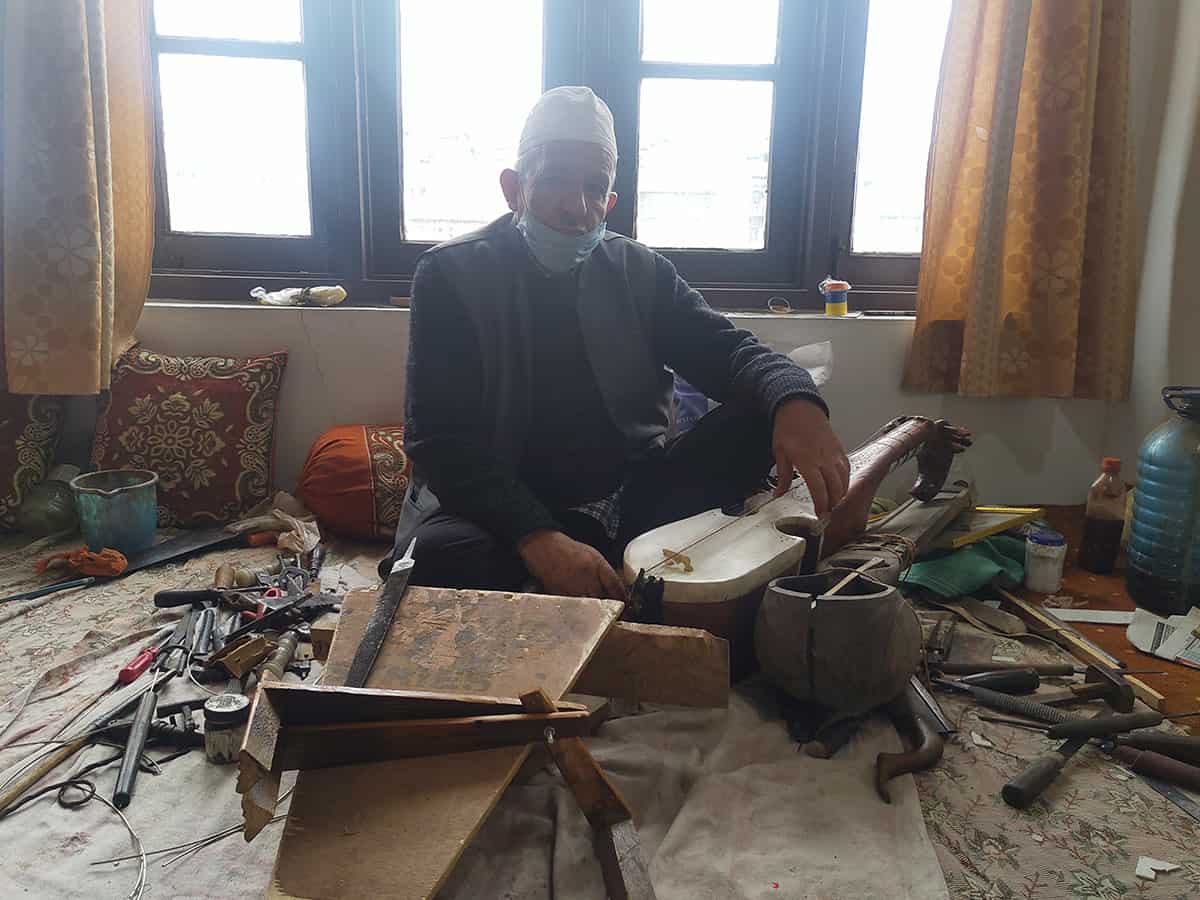Srinagar: Ghulam Mohammad Zaz went down the stairs from his makeshift workshop inside a small hall on the second floor of his house, located on the bank of river Jhelum in Zaina Kadal area of old Srinagar, as one of his family members called him, saying, “Someone is looking for you at the gate.”
A few minutes later the veteran luthier arrived with a traditional musical instrument in his hands and placed it in one of the corners of the workshop towards his left. He sat cross-legged with a small triangular wooden table right in front of him. This is the place where he works with his craft. It is messed and surrounded by several tools such as chisels, saws, and mini-hammers. “A customer wants me to repair his Rabab,” says Zaz. “I will start repairing it tomorrow at my ancestral workshop, a few meters away from my house,” he adds.
The 70-year-old Zaz learned to pour music into the wood and strings at the age of 20 after getting trained by his grandfather and father. “There is no one left in Kashmir valley apart from me who knows how to make or repair traditional musical instruments,” he says, adding that seven generations of his family have been into the art of making musical instruments such as Rababs, Santoors, and Sarods.
“The musical instruments made by the Zaz family are long-lasting,” says Gulzar Shah, owner of one of the prominent musical instrument stores in Kashmir, which has been selling instruments made by the Zaz family for more than three decades. “One of the instrumentalists I know is still using a 35-year-old Santoor made by Ghulam Mohammad Zaz himself,” noted Shah.
Shah told Siasat.com that instruments made by the Zaz family are of “exceptional quality” adding that maestros like Pandit Shiv Kumar Sharma and Pandit Bhajan Sopori, who introduced Santoor in Indian classical music, are their customers. “Zaz Sahab would also make Kashmiri musical instruments for foreigners with some modification as per the requirement of the clients,” he adds.
Zaz, however, now makes a limited number of instruments because of his age and the non-availability of raw material. “Until many years ago, we used to make some of the instruments from antlers of a Stag. You won’t find examples of the stuff I just gave you because of the ban imposed on hunting of wild animals in Kashmir,” Zaz reminisce.

The expert craftsman points out that even if he finds “banned” materials required for making an instrument now, but no one will be able to purchase it because of its high price.
“The second factor is that I reduced the production of musical instruments because of problems caused due to my increasing age,” Zaz explains. He further explained that to complete one musical instrument like a Santoor, it takes him at least a month, that too if he dedicates his full time to it.
The ageing craftsman, in spite of suffering from back pain issues and low eyesight, is still carrying forward the work that was taught to him by his ancestors. The man, at his core, is not just someone who can repair or make instruments but is someone who also appreciates the music that flows out of those when its strings are touched.
Zaz in fact loves classical musical instruments “unconditionally”, as the music produced by them brings him joy and happiness. “The instruments are very close to my heart. My family and I are very fortunate to have been able to contribute to the tradition of our society,” he adds.
The craftsman has three daughters. With no son, Zaz’s skill and knowledge is unlikely to be carried forward, along with his legacy of instrument making. “I don’t call myself unfortunate for not having a son who could have taken the legacy of making musical instruments forward, but I consider it the will of almighty Allah,” he says. “None among my cousins, siblings, or their children learned this art and I believe it was only meant for me,” he said.
Interestingly, Zaz not being able to pass on his skill and legacy is not just fate or luck. Like in many parts of the world, he says, the end of his family’s legacy was decided long ago by Peers and Fakirs, who told Zaz’s ancestors that only seven generations would learn the craft.
With a smile on his face, Zaz says that he is currently making a Santoor for a New Delhi based client, which will be ready in a week or two. With some tranquillity and deep thought, his final words for the interview are a reflection of the fate of his craft itself. “It will only fetch me Rs 20,000 maximum. There is no fixed price for the art, but in Kashmir, no one respects the art and the artist. As a result, they both become extinct, unfortunately.”

